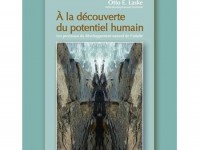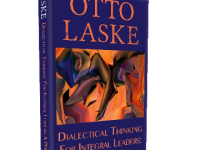This article describes a constructivist approach to coaching based on the Constructive Developmental Framework (CDF). Such coaching is evidence based, i.e., based on empirical assessments of coachees prior to actual coaching. Coaching plans are based on empirical findings about coachees' present frame of reference (the way they see the world), meant to guide them toward a more lucid understanding of themselves and their work, and toward more complex thinking. The article appeared in the International Review of Coaching Psychology, London, UK, in 2007, and is here reprinted because it helps behavioral coaches understand the limitations of their professional work. Contributions of Evidence Based Coaching 2007 Read More...
Category: Courses
An Integrated Model of Developmental Coaching
This article, originally published in 1999 but still very timely today, introduces a way of deepening cognitive-behavioral, psycho-dynamic, and other behavioral approaches to coaching and HR resources management. It proposes an epistemological model that focuses on adults' frame of reference (world view), the true determinant of human behavior, which has been practiced and taught internationally at the Interdevelopmental Institute (IDM) since 2000. The approach focuses on adults speech behavior as a dimension revealing their developmental profile both social-emotionally (with regard to meaning making) and cognitively (with regard to sense making or *thinking*). The paradigm and the model are developmental in a twofold sense, that of “ontic” development occurring in human organisms as the mature over their lifetime (“nature”), and of “agentic” development brought about by humans (“nurture”). An introduction to the model is presented, followed by the topology of the mental space of coaching, a summary, and suggested topics for future research. Source: Consulting Psychology Journal 51.3, pp. 139-159 CPJ #1, 1999 Read More...
What is CDF: An Introduction for Beginners
This article introduces to the Constructive Developmental Framework (CDF), addressing those readers who want to learn to use the methodology. CDF is seen as a comprehensive framework for consulting and coaching, much like NLP, but on a higher level of consciousness. Its main intellectual strength lies in establishing a methodology for the deconstruction, through dialog, of less developed thinking and meaning making, for the sake of client benefit. Viewed more broadly, CDF is a framework for “coaching for society” that can lift individuals’ and teams’ developmental level. What is CDF -- An Introduction for Beginners Read More...
DIALECTIC IS GOOD FOR BUSINESS: IT HELPS TO BEFRIEND IT
It so happens that not only is the world in unceasing transformation, but the human mind (which is part of it) has been given invaluable tools to deal with it. I am referring to the “four moments of dialectic” philosopher Roy Bhaskar taught us, as well as to Basseches' and my own work on dialectical thought forms since the year 1997. In courses at the Interdevelopmental Institute, I have shown since 2000 that the four moments of dialectic equally show up in human thinking, whether manifest in speaking or writing. I daresay this could be a key for living in this rapidly changing world a little more prepared what is coming toward us. How could you make a start in dialectic? Well, as philosophers have always taught us, you need to start with yourself. It isn’t hard, but it takes an effort. Living in a language-suffused world as we do, you could start with what you hear yourself saying when you speak and consider how the four moments of dialectic inform your thinking that is being expressed through concepts. You will find that as soon as you open your mouth you have already placed yourself into one of the four... Read More...
Buchbesprechung von Otto Laske’s “Dialectical Thinking for Integral Leaders: A Primer”
Buchbesprechung Otto Laske, Dialectical Thinking For Integral Leaders: A Primer Integral Publishers, ISBN 978-0-9904419-9-1, 2015 (June) Zusammenfassung In dieser Buchbesprechung hebt Michael Habecker die wesentlichen Gedanken eines jeden Kapitels des obigen Buches heraus und schafft dadurch eine klare Zusammenfassung der Intentionen von Otto Laske. Michael Habecker Das neue Buch von Otto Laske, als eine Zusammenfassung seiner Arbeit zum dialektischen Denken, leistet Wesentliches zur Theorie und Praxis menschlichen Denkens als eines unserer wichtigsten Instrumente und Möglichkeiten zum Erkennen und Verstehen von uns selbst, anderen Menschen und der Welt als Ganzes. Es richtet sich im Titel an „integrale“ Führungspersonen und versteht sich in diesem Sinne als ein Angebot an diesem Personenkreis und an die integrale Theorie und Praxis als Ganzes. Dieser Primer fasst die Inhalte des Buches Measuring Hidden Dimensions: The Art and Science of Fully Engaging Adults Band 2 von Otto Laske zusammen, von dem es noch keine deutschsprachige Übersetzung gibt. Übersetzt ist jedoch der Band 1, Potenziale in Menschen erkennen, wecken und messen: Handbuch der entwicklungsorientierten Beratung, in dem es um die sozial emotionale Entwicklung des Menschen geht, welche der Autor klar von der Entwicklung dialektischen Denkens, als dem Gipfel erwachsenen kognitiven Denkens unterscheidet, um die es in dem Primer... Read More...
Short Characterization of the CDF-Based Coaching Methodology
This short article describes what makes CDF-based coaching unique and makes it different from other coaching approaches. The CDF-based coach training method enriches approaches based on theories of adult learning by insights and practices derived from theories of adult development over the lifespan (1975-1995). CDF further enriches theories of adult development by insights derived from Critical Theory elaborated at the Frankfurt School between 1945 and 1975. Researchers of adult learning and development have only just begun to talk to each other, so that a synthesis of the two lies in the more or less distant future. The main result of including in coaching techniques of Critical Theory (Adorno) is that the emphasis of CDF-training is on the coach, not the client, in particular the coach as a “critical, deep thinker” who can guide the client’s adult development, fully aware of the client’s present developmental profile. Learning and development are seen in CDF as entirely different. “Learning” is accumulation of knowledge and experience over time (measured by horizontal snapshots at a particular time point), while “development” is a discontinuous deepening of meaning making and thinking across individuals’ entire lifespan (measured longitudinally, across time, through structured interview). Whereas adult learning approaches are... Read More...


